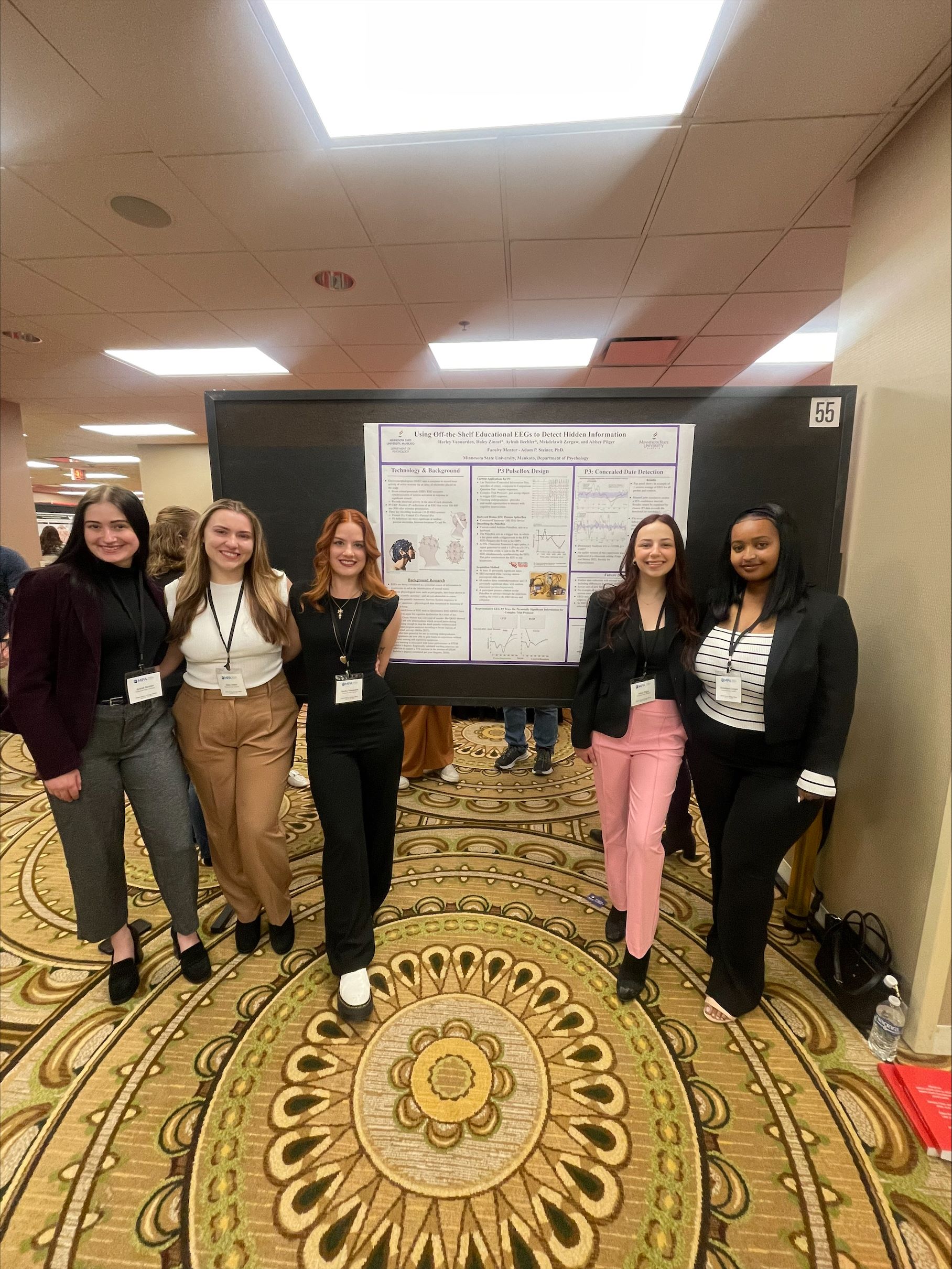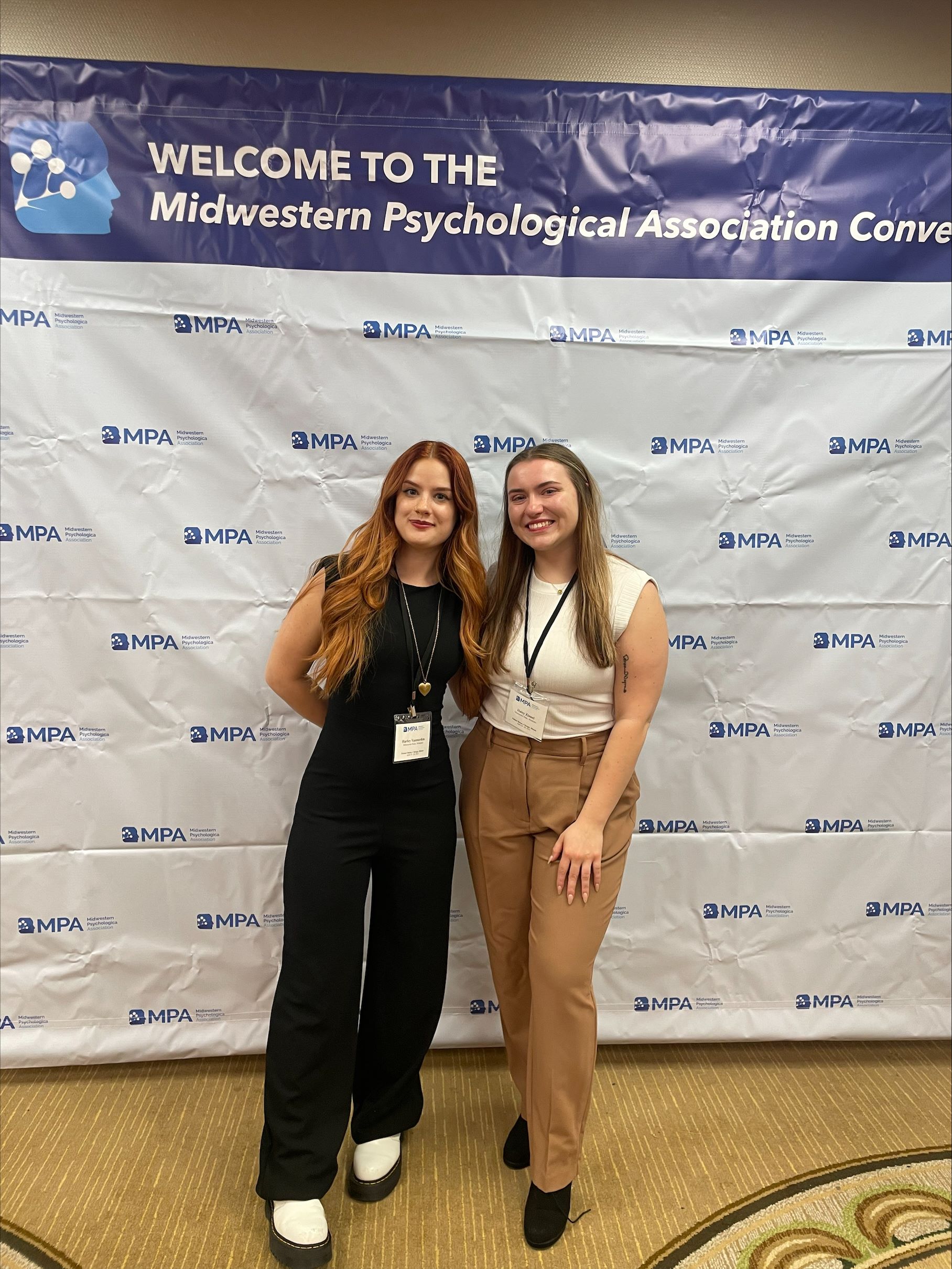Psychology Students Present at Midwest Psychological Association in Chicago

 From April 18-20, 2024, students and faculty from the Department of Psychology traveled to Chicago to attend the Midwest Psychological Association conference and presented their research on off-the-shelf electroencephalograms (EEGs) and their potential in detecting lies or hidden information.
From April 18-20, 2024, students and faculty from the Department of Psychology traveled to Chicago to attend the Midwest Psychological Association conference and presented their research on off-the-shelf electroencephalograms (EEGs) and their potential in detecting lies or hidden information. Their experiment used a device called the Backyard Brains SpikerBox, which is an affordable and accessible tool that records brain activity using EEGs. An EEG measures electrical signals in the brain by placing sensors on the scalp. In the experiment, participants provided 15 personally meaningful dates, like birthdays or holidays, which then were mixed with 85 random dates in a slideshow. While participants viewed these slides, the SpikerBox recorded brain signals to see if it could detect when someone saw a date that was important to them.
The study focused on a brain signal called the P300, which appears when a person sees something significant. The results showed that the device could accurately detect these signals when participants saw their important dates, without even saying anything. This research suggests that low-cost EEGs could be effective for lie detection or tracking whether someone is paying attention in class.
Interestingly, the technology could one day be used in areas like education, criminal justice, ethics and even business. Several police officers who saw the research were interested in possibly replacing the traditional polygraph test with this new approach. Although more research is needed to ensure its accuracy, this technology is gaining popularity and could have numerous applications in the future.
Students pictured: Ayleah Beehler, Mek Zergaw, Harley Vannurden, Haley Zinnel, and Abbey Pilger.


